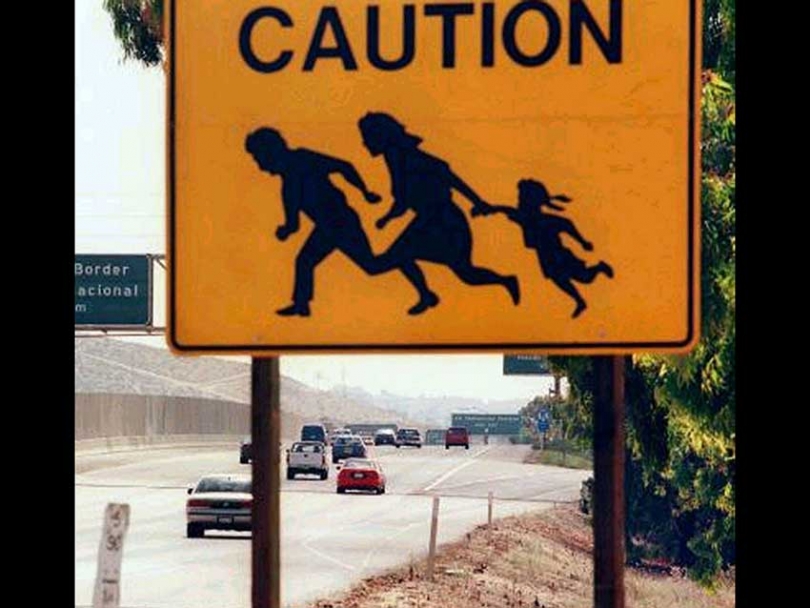 Photo credit: http://chattahbox.com
Photo credit: http://chattahbox.com
Nov
On 21 October 2010, the government introduced Bill C-49 titled “Preventing Human Smugglers from Abusing Canada's Immigration System Act”. Despite its name, the bill has attracted strong criticism from human rights groups who say that most of its provisions appear to target refugees, not smugglers. This is what a few lawyers and refugee rights activists have had to say:
“Measures keeping some refugees longer in detention, denying them family reunification and restricting their freedom of movement are likely in violation of the Canadian Charter and of international human rights obligations. People who are forced to flee for their lives need to be offered asylum and a warm welcome, not punished.”
- Wanda Yamamoto, President, Canadian Council for Refugees
“Particularly outrageous is the proposal that all refugees arriving with a group that the government decides to designate as a human smuggling event would face mandatory detention for up to one year, with very little opportunity for review. This constitutes a serious violation of Canada's international and constitutional obligation not to subject individuals to arbitrary detention. As well, using detention to penalize refugees for irregular entry into a country very clearly contravenes Canada's obligations under Article 31 (2) of the Refugee Convention.”
- Alex Neve, Secretary General, Amnesty International Canada
As a human rights group that advocates for the rights of people of Eritrean origin, including refugees who often have no choice, but to escape from oppression and persecutions using smugglers; who often get abused by their smugglers and sometimes die at the hands of their smugglers; and who often take on hazardous journeys and great risks to reach a place of safety and refuge using smugglers, not because it is a right way, but because it is the only way, we are deeply troubled by the contents of Bill C-49. It does not only harm those who has arrived at the shores of Canada, but has a far reaching consequences in eroding the global protection of refugees and in setting a negative tone to the international discourses on refugee protection.
- Haile Kiflai, Qalna - Eritrean Human Rights Group
“This bill is a grave assault on the human rights of refugees. While human smuggling is a serious problem that needs to be addressed, it is perverse to tackle the problem by targeting the desperate refugees who get smuggled. It is also in direct contravention of both international law and Canada's own Charter of Rights and Freedoms.”
- Geraldine MacDonald, President, Refugee Lawyers' Association of Ontario (RLA)
“Mode of arrival is an arbitrary and wholly unreasonable basis for distinguishing amongst refugees. Subjecting those who arrive in "groups" to mandatory detention and a bar to family reunification could very well result in families, including children being separated from their loved ones for close to a decade. The bill clearly contravenes the non-discrimination provisions of both our Charter of Rights and international law.”
- Sharry Aiken, Associate Dean and Associate Professor, Faculty of Law, Queen's University
“This bill punctures the hope of desperate refugees who cling to a lifeboat. Bill C-49 effectively throws refugees overboard but in a nice Canadian way and all in the name of law, order and good government.”
- Mary Jo Leddy, Order of Canada, Ontario Sanctuary Coalition
"Bill C-49 punishes refugees who have no doubt in most cases fled from the sort of situation we would all seek to flee from if we could. Amongst the refugees incarcerated from the last ship which arrived from Sri Lanka there are pregnant women and a child with shrapnel wounds to his head. Quite apart from issues of international law, there is an issue of humanity here, is there not? I hope Members of Parliament will stand up for humanity, and vote against the bill."
- Brydon Gombay, Quaker Committee for Refugees
“In Bill C-49 mandatory detention is proposed for some refugee claimants, and yet those in our country who have been convicted of our most serious offences are entitled under our law to be released upon parole, if release is the least restrictive measure consistent with the protection of the public. Serious criminals are entitled to the least restrictive measure: upon the basis of which principle should we treat those fleeing persecution more restrictively than our worst criminals?”
- Leslie H. Morley, President, Canadian Prison Law Association
"As they did earlier this year with Bill C-11, the government has timed an announced increase in resettlement alongside Bill C-49's legislative reform that will make it harder for refugees to reach Canada and unfairly penalize those who do. While increased resettlement numbers should be celebrated, they do not and cannot replace Canada's international obligations to refugees who claim asylum in Canada. It is wrong and misleading of the government to position these two refugee flows in juxtaposition."
- Shauna Labman, Ph.D. Candidate and Trudeau Scholar, Faculty of Law, UBC
This article was produced exclusively for Muslim Link and should not be copied without prior permission from the site. For permission, please write to info@muslimlink.ca.












